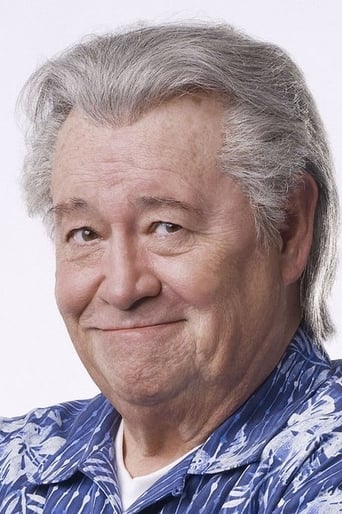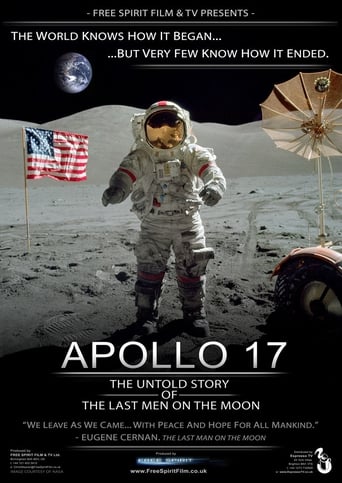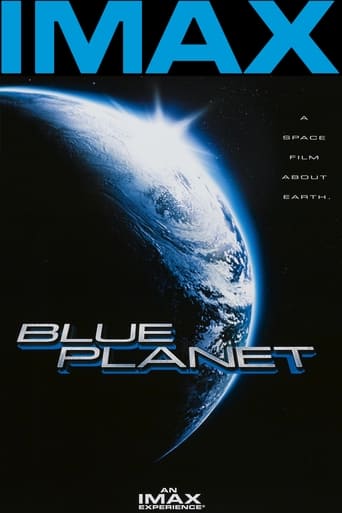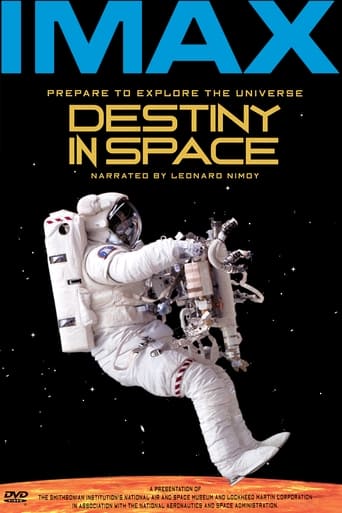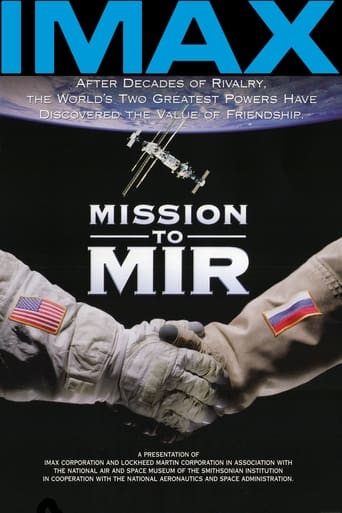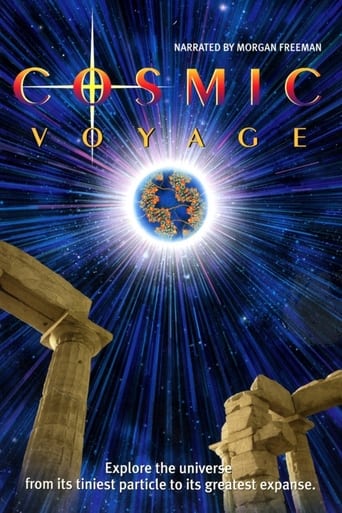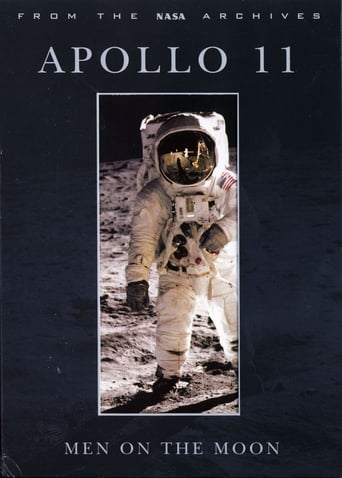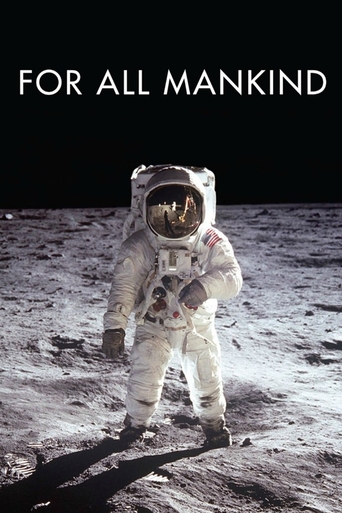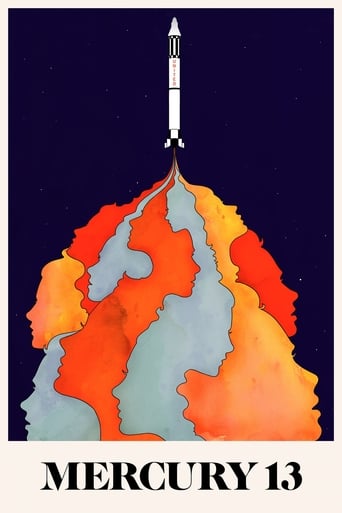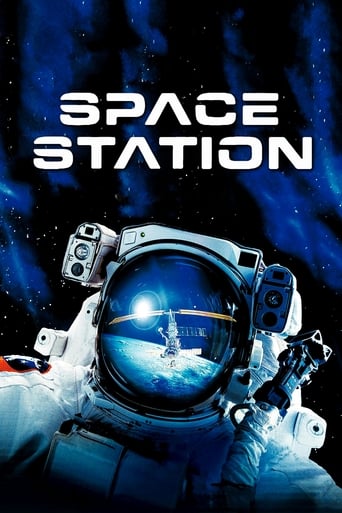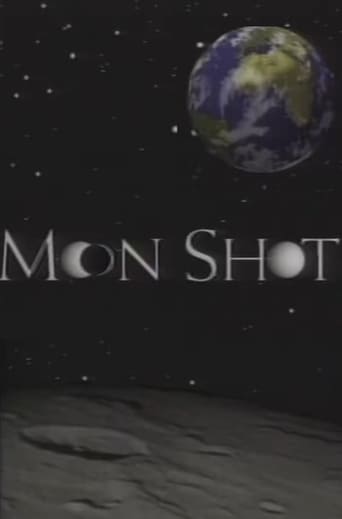

Moon Shot (1994)
The inside story of America's race to the moon.
Watch Trailer
Cast


Similar titles
Reviews
Pretty Good
Nice effects though.
It's fun, it's light, [but] it has a hard time when its tries to get heavy.
If you like to be scared, if you like to laugh, and if you like to learn a thing or two at the movies, this absolutely cannot be missed.
I was fortunate enough to see this on its original TBS broadcast in 1994 and have just finished re-watching it for the first time in several years in honor of the fortieth anniversary of the Apollo 11 Moon landing. Having not seen it in so long and having been highly impressed with then, I was intrigued to see this again and wondered if my wonderful memories of it were still true. As it turns out, the memory didn't cheat on this occasion. Moon Shot was a fantastic and personal look at the Space Race from its beginning in 1957 to effective epilogue in 1975.This documentary series is based upon the book written by astronauts Deke Slayton and Alan Shephard (both of whom are now deceased). The series is told from the point of view of Slayton in the form of narration from actor Barry Corbin. Corbin proves to be a perfect choice for the voice of Slayton (who died during the making of the series in 1993). As Slyaton, Corbin brings a wide range of emotions to his narration rather then a possibly monotone form of narration and by the end of it one could be convinced he is Slayton. Corbin though is the tip of the iceberg.The series is also full of interviews as well. These range from other astronauts (including the book's co-author Alan Shephard) plus various individuals such as those who worked for NASA or reporters who covered NASA in this period. The interviewees each bring their own personal perspectives and allow for a much fuller version of events to be shared. The interviews also present a rather interesting historical document in themselves as many of the astronauts interviewed including Shephard, Wally Schirra and Stu Roosa to name a few have since passed away (Roosa passing away just months after the original broadcast). The interviews represent both a fuller picture of events and an interesting historical document rolled into one.The series also makes extensive use of archive material as well. Much credit goes to the filmmakers in successfully bringing nearly twenty years worth of events into a just over three hour package which is entertaining, tense and informative even to someone who has spent their life studying the space program. Whiel there is a considerable amount of mixing and matching of stock footage which can become noticeable at times if you know enough, I suspect that the general viewer will remain oblivious to much of that (as I did until my most recent viewing). All in all though it is program that counts and the fact that this is as fascinating to watch today as it was fifteen years ago should speak to the success of the filmmakers.Moon Shot isn't just another documentary on the Space Race. It is that familiar story told from the perspective of those on the inside of those events ranging from Deke Slyaton (in the form of Corbin's fine narration), interviews and archival footage in a from that is never boring but entertaining, tense and informative. As a result, Moon Shot (like its literary counterpart) takes a fascinating period of history where man first reached out into the night sky come alive again and, as someone who was born well after the fact, offers an amazing gateway into the past. I highly recommended this series along with the films For All Manking and In The Shadow Of The Moon as the best programs to watch about the Apollo missions.
This series is about the race to the moon viewed from the the perspective of the American Space Program from Mercury to Apollo. Retired astronauts, engineers, and program managers reminisced about their involvement in the program which makes this 4 hour program an invaluable documentary of the history of American space exploration.What kind of an era was this when people were able to dream such grand adventure, and actually pull it off ? Sadly space exploration was put on hold due to domestic issues of feeding the poor, but 40 years later, those problem still persists, and we're not officially back on moon for all the years. Makes you wonder if the protest of the poor were just a sour grape to find an easy target to take pot shots at.There's still magic in seeing the giant Saturn V rocket take off, and space crafts making docking maneuvers in space. It could be the best of the movies, but even better. Will we see the spirits of adventure like this in our life time again ? If not, we've lost something valuable to all humanity.
It's ironic that the film Star Wars premiered only a very few years after the last Apollo flight. Of course, Star Wars became one of the greatest commercial successes in film history. The Apollo program died, because people weren't interested anymore. Perhaps many of us like to fantasize about space more than really doing something about going there. However, there was a time when that wasn't so. Moon Shot is an absolutely superb documentary about how the space program went from a short flight of fifteen minutes to man walking on the moon in less than a decade. Through interviews with some of the astronauts from that period, it also shows that people who ventured into space were just that-real people. They were not named Darth or Luke, nor were they the offspring of intergalactic royalty. The didn't wear capes or spandex costumes or use the Force. Rather, they were named Al or Gus or John or Neil. They came from working class backgrounds in many cases (John Glenn's father was a plumber). They had families, mortgages, and car payments. They worked hard, and sometimes made mistakes. They also did great things. By telling what happened, and having some of them tell what happened, Moon Shot is a wonderful chronicle of their accomplishments.
With a lot of great humor. Moon Shot covers the U.S. space program from the Mercury days through Apollo/Soyuz, as told by former astronaut Deke Slayton (voiced by Barry Corbin). The humor comes from anecdotes from several of the original astronauts, including John Glenn, who, talking about the mysterious "fireflies" that appeared during his space mission, said that one of the psychiatrists asked him, "And, what did they SAY, John?" Alan Shepard later said, "Those fireflies weren't fireflies at all....they were the constellation URION (Urine)."Or another example: Frank Borman, talking about his Gemini 12 flight with Jim Lovell, says, "There was a song by Nat King Cole.." And Lovell comes on, and says, " 'Put Your Sweet Lips a Little Closer to The Phone,' by Nat King Cole." They then alternate verses, and Lovell finally says, "And that went on for two weeks. And of course, Frank & I were alone." Or the debate about who would be the first man to step on the moon - Armstrong, or Aldrin. As "Deke," Barry Corbin, put it: "It came down to tradition, and tradition says the commander always goes first. Besides, Neil was closest to the door!"One of the most poignant lines comes from Alan Shepard, when he describes what his father told him after his Apollo 14 mission: "My father said, 'Do you remember when you called us, back in 1959, and said that you were going to be an astronaut'? I said, 'Yessir.' He said, 'Do you remember what I said?' I said, 'Yessir. You were not in favor of it.' And he raised his glass and said...'I was wrong.' And that's all he had to say."This video belongs in the library of anyone who is in any way interested in history and the early U.S. space program.


